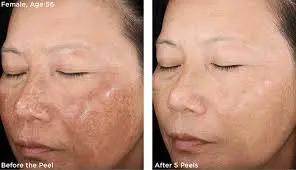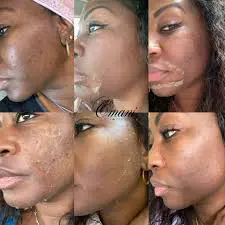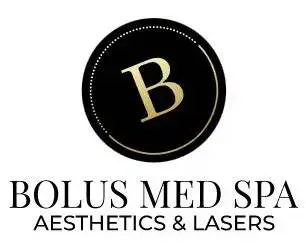So What Exactly is a Chemical Peel?
A chemical peel is a professional cosmetic treatment used to improve the appearance of the skin on the face, neck, or hands. During the procedure, a customized chemical solution is applied to the skin, causing it to exfoliate and eventually peel off. The new, regenerated skin is usually smoother and less wrinkled than the old skin.


What Types of Chemical Peels
Light Chemical Peels
These are the mildest form of chemical peels, often referred to as lunchtime peels. They use alpha-hydroxy acids (AHAs) like glycolic acid to gently exfoliate the outermost layer of skin. You will not peel much at all with this, but the top layer of skin will exfoliate.
Medium Chemical Peels
Medium peels like VI Peel or The Perfect Derma Peel, penetrate deeper into the skin, using trichloroacetic acid (TCA) to remove damaged skin cells. They are effective for treating fine lines, wrinkles, and pigment irregularities.
Deep Chemical Peels
Deep peels use stronger acids like phenol to deeply penetrate the skin, addressing more severe skin issues such as deep wrinkles and scars. This type of peel requires a longer recovery period.
Chemical Peel Procedure
The chemical peel procedure varies depending on the type and strength of the peel. Generally, it involves the following steps:
- Cleansing: The skin is thoroughly cleaned to remove oils and dirt.
- Application: The chemical solution is carefully applied to the skin.
- Neutralizing: After the solution has been left on for the appropriate amount of time, it is neutralized or removed.
- Aftercare: Post-procedure instructions are provided to ensure proper healing and optimal results.
How Much Do Chemical Peels Cost?
The cost of a chemical peel can vary depending on the type of peel and the location of the spa. At Bolus Med Spa, we offer competitive pricing for our chemical peel services in Baltimore, Columbia, and Annapolis. Our VIP Membership offers free chemicla peels to those serious about keeping their skin healthy.
What Are The Benefits of Chemical Peels
Professional Chemical Peel for Body Treatments
Chemical peels are not limited to facial treatments. They can be effectively used on other parts of the body to treat sun damage, scars, and hyperpigmentation.
VI Peel and The Perfect Derma Peel
These are advanced chemical peels known for their effectiveness in treating various skin conditions with minimal downtime.
Chemical Peel Before and After
Results from chemical peels can vary, but many clients see noticeable improvements in the texture and tone of their skin after a series of treatments. Before and after photos are available upon request.
Chemical Peel Near Me
Bolus Med Spa proudly serves clients in Baltimore, Columbia, and Annapolis. Contact us today to schedule your consultation and learn more about how chemical peels can benefit your skin.
Do chemical peels really make a difference?
Yes, chemical peels can make a significant difference in the appearance and health of your skin. Here's how:
- Improved Skin Texture and Tone
- Reduction of Fine Lines and Wrinkles
- Acne and Acne Scar Treatment
- Hyperpigmentation and Sun Damage
- Enhanced Skincare Absorption
- Boosted Confidence
Overall, chemical peels offer numerous benefits for various skin concerns, making them a versatile and effective treatment option. If you're considering a chemical peel, it's essential to consult with a qualified professional to determine the best type and strength for your specific skin needs.
Frequently Asked Questions
Are chemical peels safe?
Yes, when performed by a qualified professional, chemical peels are safe. They are designed to improve the skin's appearance with minimal risk.
Are chemical peels worth it?
Many clients find chemical peels to be highly effective for treating a variety of skin concerns, making them a worthwhile investment in their skincare routine.
Chemical peels for dark spots?
Yes! Chemical peels work by exfoliating the top layers of the skin, which helps to fade dark spots and even out skin tone. They promote cell turnover, removing the damaged, pigmented layers and allowing new, healthier skin to emerge. This process can significantly reduce the appearance of hyperpigmentation over time. Combine with microneedling to REALLY take it to another level of elegance!
Are chemical peels good for acne?
Yes, chemical peels can be an excellent treatment for acne, helping to reduce breakouts and improve skin texture.
Can chemical peels remove scars?
Yes and No. Chemical peels can help reduce the color of certain types of scars such as pigment from acne scars, but not the structure. For deeper or textured acne scars HALO Laser is the best choice.
Chemical Peels For Hyperpigmentation
Chemical peels work by exfoliating the top layers of the skin, which helps to fade dark spots and even out skin tone. They promote cell turnover, removing the damaged, pigmented layers and allowing new, healthier skin to emerge. This process can significantly reduce the appearance of hyperpigmentation over time. Combine with microneedling to REALLY take it to another level of elegance!
How many chemical peels do I need for hyperpigmentation?
The number of chemical peels needed for hyperpigmentation varies depending on the severity of the condition and the type of peel used. Typically, a series of treatments is recommended for best results.
Can chemical peels treat melasma?
Yes, chemical peels can be effective in treating melasma, helping to lighten dark patches and even out skin tone.
What chemical peels do Dermatologists recommend?
Dermatologists often recommend peels like the VI Peel and The Perfect Derma Peel due to their proven effectiveness and safety profiles.
When do chemical peels start to peel?
Peeling typically begins 2-3 days after the procedure and can last for several days, depending on the depth of the peel.
What are the best chemical peels?
The best chemical peels depend on your specific skin concerns and goals. Light, medium, and deep peels each offer unique benefits.
Why are chemical peels good?
Chemical peels are good because they can address a wide range of skin issues, including fine lines, wrinkles, acne, scars, hyperpigmentation, and uneven skin tone, resulting in healthier, rejuvenated skin.
